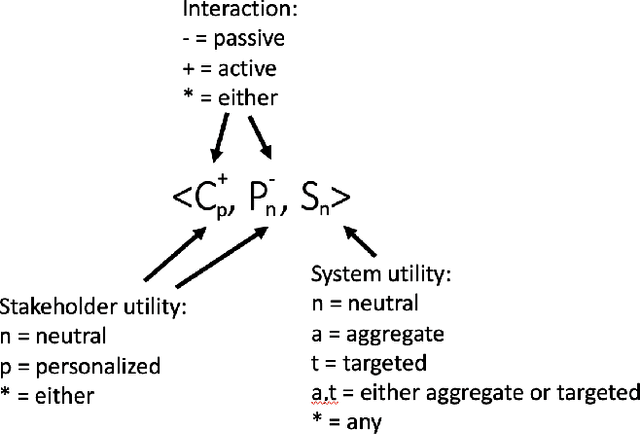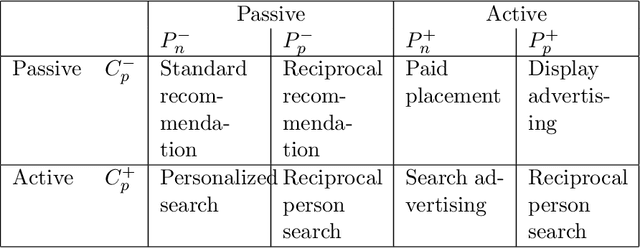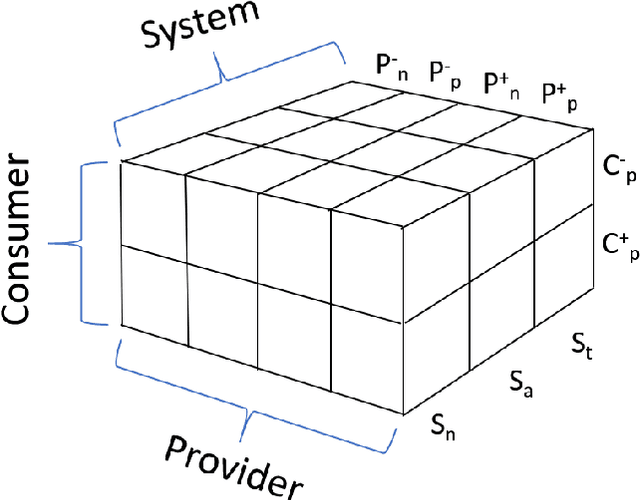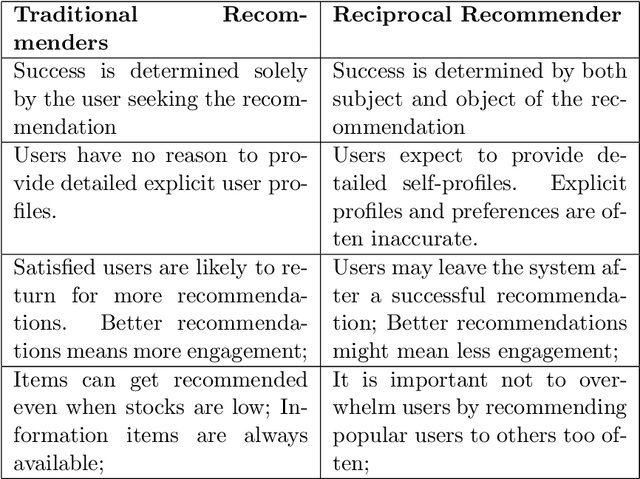Jan Krasnodebski
Beyond Personalization: Research Directions in Multistakeholder Recommendation
May 01, 2019



Abstract:Recommender systems are personalized information access applications; they are ubiquitous in today's online environment, and effective at finding items that meet user needs and tastes. As the reach of recommender systems has extended, it has become apparent that the single-minded focus on the user common to academic research has obscured other important aspects of recommendation outcomes. Properties such as fairness, balance, profitability, and reciprocity are not captured by typical metrics for recommender system evaluation. The concept of multistakeholder recommendation has emerged as a unifying framework for describing and understanding recommendation settings where the end user is not the sole focus. This article describes the origins of multistakeholder recommendation, and the landscape of system designs. It provides illustrative examples of current research, as well as outlining open questions and research directions for the field.
A Multi-Objective Learning to re-Rank Approach to Optimize Online Marketplaces for Multiple Stakeholders
Aug 03, 2017

Abstract:Multi-objective recommender systems address the difficult task of recommending items that are relevant to multiple, possibly conflicting, criteria. However these systems are most often designed to address the objective of one single stakeholder, typically, in online commerce, the consumers whose input and purchasing decisions ultimately determine the success of the recommendation systems. In this work, we address the multi-objective, multi-stakeholder, recommendation problem involving one or more objective(s) per stakeholder. In addition to the consumer stakeholder, we also consider two other stakeholders; the suppliers who provide the goods and services for sale and the intermediary who is responsible for helping connect consumers to suppliers via its recommendation algorithms. We analyze the multi-objective, multi-stakeholder, problem from the point of view of the online marketplace intermediary whose objective is to maximize its commission through its recommender system. We define a multi-objective problem relating all our three stakeholders which we solve with a novel learning-to-re-rank approach that makes use of a novel regularization function based on the Kendall tau correlation metric and its kernel version; given an initial ranking of item recommendations built for the consumer, we aim to re-rank it such that the new ranking is also optimized for the secondary objectives while staying close to the initial ranking. We evaluate our approach on a real-world dataset of hotel recommendations provided by Expedia where we show the effectiveness of our approach against a business-rules oriented baseline model.
 Add to Chrome
Add to Chrome Add to Firefox
Add to Firefox Add to Edge
Add to Edge